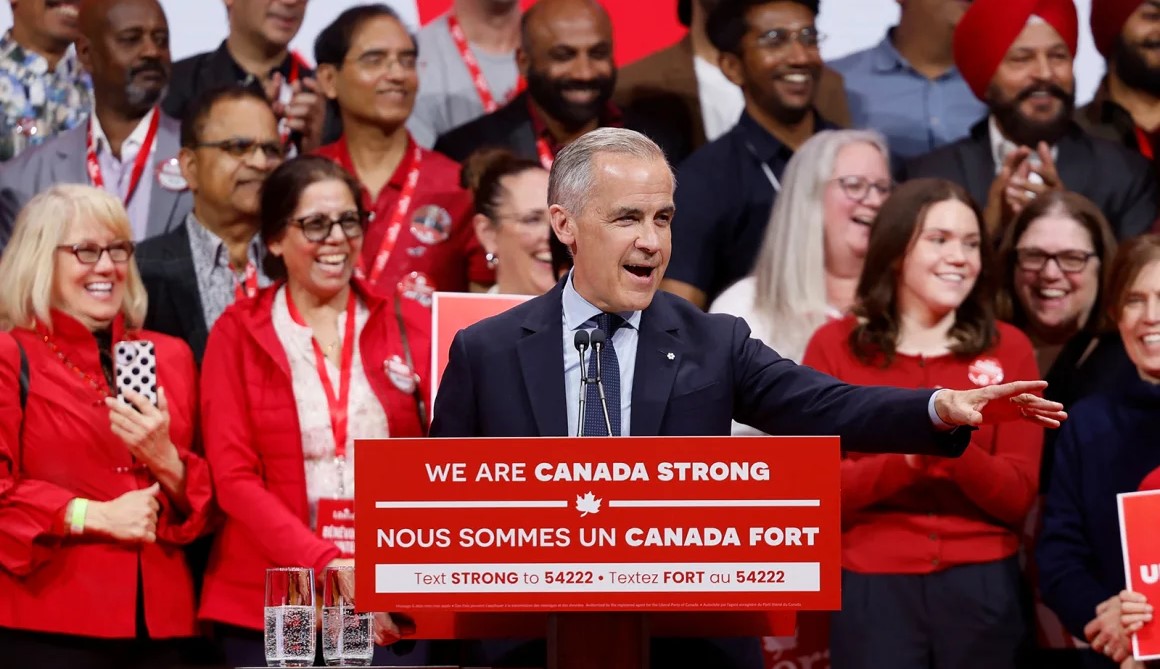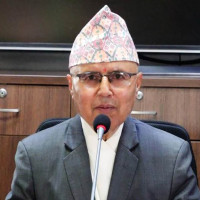- Thursday, 29 January 2026
Canada’s Liberals win as voters rally against Trump
By Max Saltman, Paula Newton, Hira Humayun and Helen Regan, Apr 29: Canadian Prime Minister Mark Carney said his country would “never” yield to the United States as he declared victory in federal elections early Tuesday, following a campaign overshadowed by relentless provocations and steep trade tariffs imposed by US President Donald Trump.
The Liberal Party leader issued a stunning rebuke to Trump as he sent a message of unity to a divided nation, promising to “represent everyone who calls Canada home.”
“As I have been warning for months, America wants our land, our resources, our water, our country. But these are not idle threats. President Trump is trying to break us so that America can own us,” Carney said, as he hailed a remarkable reversal in fortune for his party. “That will never ever happen.”
Carney reiterated statements he made on the campaign trail about the vastly changed nature of Canada’s relationship with the US.
“We are over the shock of the American betrayal but we should never forget the lessons. We have to look out for ourselves. And above all we have to take care of each other,” he said.
Voters have returned Canada’s Liberal Party to power for a fourth consecutive term but it remains to be seen whether Carney has won a majority or will need coalition partners to govern.
The Liberal’s victory was tempered by them appearing set to fall short of winning the 172 seats needed to govern without support from a smaller party.
Conservative opposition leader Pierre Poilievre conceded defeat early Tuesday. Capping a bad night for his party, he’s also projected to lose the seat he’s held for nearly two decades.
Former central banker Carney, 60, has led a wave of anti-Trump sentiment since winning his party’s leadership contest in a landslide after former prime minister Justin Trudeau stepped down last month. He has rallied the public against the US president’s threats to annex the country as “the 51st state” and made the defence of Canada a central part of his platform.
Poilievre had been the favourite to win when Trudeau announced his resignation in January in the wake of dire polls, a serious cost of living crisis and an internal revolt in his cabinet.
But Trump’s tariffs on Canadian goods and threats to its sovereignty dramatically transformed the race into something of a referendum against the US president.
Poilievre said his Conservatives will work with Carney and other parties in “defending Canada’s interests” and “protecting our sovereignty.”
“We will always put Canada first as we stare down tariffs and other irresponsible threats from President Trump,” he said.
Carney had never held political office before becoming prime minister. His decades in finance saw him steering governments through major global crises and periods of upheaval, including shepherding Canada’s economy through the 2008 financial crisis. As governor of the Bank of England, he helped the United Kingdom navigate Brexit – which he said mirrors what could happen to the US in the face of tariffs.
The idea that Canada needs to forge its own path outside of US influence has been central to Carney’s messaging since he took office.
Carney pitched himself throughout the campaign as an experienced professional from the political center who can steward Canada’s economy through a period of profound turbulence.
“I understand how the world works,” Carney told podcaster Nate Erskine-Smith in October. “I know people who run some of the world’s largest companies and understand how they work. I know how financial institutions work. I know how markets work … I’m trying to apply that to the benefit of Canada.”
Trump’s tariffs against Canadian exports pose a grave threat to the country’s economy and lasting stability. The US president’s decision to levy a 25% duty on Canadian steel and aluminum, cars and car parts, and threats to tariff pharmaceuticals and lumber have shaken Canadian businesses and pushed the country toward recession. It’s a reality Carney has not sugarcoated, warning of “tough days ahead” with pressure on Canadian employment.
But the prime minister has pledged to “build things in this country again” to make Canada less reliant on the US: new homes, new factories, and new sources of “clean and conventional energy.”
Carney has not ruled out continued talks with Trump, but he has also been moving to deepen ties with more “reliable” allies. In an unusual move, his first prime ministerial trip abroad was to Europe, where he spoke to French and British officials about deepening security, military and economic ties.
In his victory speech early Tuesday, Carney said that when he does sit down with Trump, “it will be to discuss the future economic and security relationship between two sovereign nations.”
“And it will be with the full knowledge that we have many, many other options than the US to build prosperity for all Canadians,” he said.
Many Canadians see Carney as someone well-placed to navigate a trade war with a long-standing ally, experts say.
“In a crisis it’s important to come together and it’s essential to act with purpose and with force. And that’s what we will do,” Carney said earlier this month as he positioned himself as the leader to take on Trump.
Another upset on Tuesday was the future of the National Democratic Party, which has so far not won enough seats to keep its party status. The NDP, a centre-left party, has played a key role during previous Liberal Party minority governments. Party leader Jagmeet Singh announced he would step down after failing to retain his seat.
“He has an important job to do, to represent all Canadians and to protect our country and its sovereignty from the threats of Donald Trump,” Singh said of Carney.

















